Overview
The University of Arizona's Inclusive Leadership Institute (ILI) seeks to foster champions who engage and lead crucial conversations around improving organizational learning and an inclusive campus community. Inclusive Fellows support and advance the university's commitment to inclusion by infusing it into their classrooms, research labs, and outreach because significant learning happens when people work with others who are different from themselves.
Issues of justice, diversity, equity, and inclusion continue to be one of the most impactful global challenges. Our goal is to develop thought-leaders who can advance inclusive excellence in innovative and impactful ways. As members of the University of Arizona community, you know the value of leveraging unique and diverse assets to create local and global transformation. Research shows that self-aware managers are more effective. Fellows develop personal and professional skills to be inclusive leaders who create restorative spaces to support their team member's sense of belonging.
The goal of the Inclusive Leadership Institute is
- To create opportunities for INTRAgroup and INTERgroup dialogue that fosters bonding and bridging barriers that affect coalition building.
- To build a community of leaders who advance inclusive excellence through coaching and mentorship.
- To diversify leadership in higher education by intentionally creating pathways for emerging leadership that reflect the changing student demographics.
Eligibility and Commitment
Any member of the university who has a passion for transforming culture and advancing justice, equity, diversity, and inclusion is welcome to apply. Application eligibility is not contingent on a leadership role. We invite employees with three (3) or more years of experience in higher education (at least one must be at the University of Arizona) and doctoral students with two (2) or more years at the University of Arizona to apply to join the next cohort of Inclusive Fellows.
Inclusive Fellows are expected to:
- Attend the orientation in August.
- Attend eight 2-hour workshop sessions.
- Commit one year to the program, with the possibility of ongoing development sessions.
- Participate in mentorship and coaching session with a senior university leader.
- Complete a final project.
- Time commitment: 2-3 hours per week.
Application closed for AY 22-23
Benefits and Curriculum Topic Areas
This certificate program provides a unique opportunity for the participant to increase their knowledge in justice, equity, diversity, and inclusion (JEDI) that can then be applied and utilized to strengthen the policies, procedures, and practices of the University of Arizona.
Certificate participants will demonstrate an understanding of the principles of inclusive excellence and how to implement them in various contexts. Participants build habits to lead a diverse team by cultivating self-awareness, emotional intelligence, cultural humility, and coalition building that support better decision-making and organizational climate.
Benefits
Participants who complete the Institute will be able to:
- Identity, understand, and critically analyze systems of power, privilege, and domination that exist within the university setting and society.
- Demonstrate understanding of theoretical frameworks and approaches that enhance justice, equity, diversity, and inclusion to address issues of injustices within higher education.
- Engage in critical dialogues that enhance collaboration with colleagues and build a supportive network to promote a culture of inclusion.
- Apply an inclusive leadership framework when dealing with incivility in the workplace to address conflict in diverse group settings.
- Design a Project for Change to strengthen your department's commitment to diversity and inclusion.
Meet Our Fellows
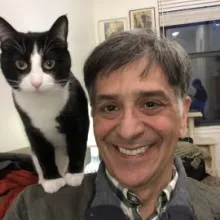
Fabian Alfie, Ph.D., is a professor of Italian who specializes in the Middle Ages (ie., Dante and Boccaccio). The field of Medieval Studies developed in part as a type of examination of the roots of the modern nation-states; thus, it retains presuppositions that can feel exclusionary. His recent research has been part of the movement to break out of that mindset, and he aims to include a more open view in his teaching.
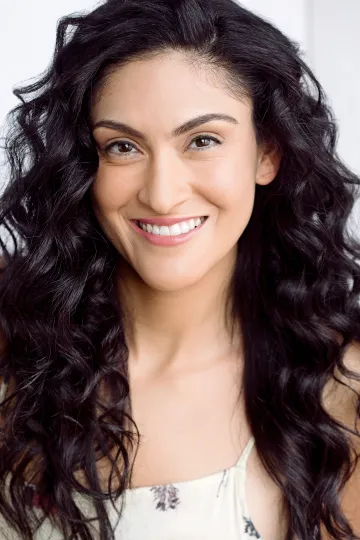
Arianna Aquino graduated with her BFA in dance from CalArts and is expecting to receive her MFA in dance from the University of Arizona in 2023. Professionally she has performed with various dance companies, has done musical theater off-Broadway, acted on Broadway and in film, and has been in commercials and music videos. For ten years, Arianna built a dance program at a Title I high school in Brooklyn, NY. There she also taught theater, fitness, and production. She served as the Chair of the Arts Department and was the Arts Instructional Coach. Her pedagogical approach is student-centered. Arianna is passionate about diversity, equity, and inclusion. Her art is an expression of true-to-life human experiences that share the stories of the underrepresented. At the University of Arizona, she serves on the Arizona Arts D&I Committee and is a founding member of the JustArts Access Fellowship. She also founded and leads DEI Gatherings in the School Dance. Arianna desires to continue building and mentoring artists and art programs that are aware and connected to the world and humanity for them to have a lasting impact on all that witness and are a part of the creative experience.
Currently, she serves as the Director of the TRIO SSS STEM program and the Assistant Director of the Arizona Science, Engineering, & Math Scholars (ASEMS ) Program for First-Time Pathways. She holds degrees in Clinical and I/O psychology, has multiple specializations, and is in the process of defending her thesis in Health and Human Sexuality.
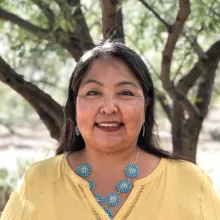
Agnes Attakai, MPA, a member of the Dine (Navajo) Nation, was raised on both the Dine homelands in Arizona and the urban California suburbs. She currently works as the Director of Health Disparities Outreach and Prevention Education for the Center for Rural Health at the University of Arizona Mel and Enid Zuckerman College of Public Health. Within the College of Medicine, she is Program Manager for the American Indian Research Center for Health, managing the Indians into Medicine, Pima County Racial and Ethnic Approaches to Community Health (REACH) and Leadership in Health Equity for American Indian Health Research & Development (LEAD) programs. Agnes has a Master of Public Administration degree and a Public Health Training Certificate for American Indian Health Professionals from Johns Hopkins Bloomberg School of Public Health. Her role is to engage and collaborate with Tribal Nations and underserved communities in Arizona to reduce health disparities and promote health equity. She has a broad background in community health, public health education, health communication, health promotion/disease engagement, and STEM mentoring specifically in rural/frontier American Indian communities.
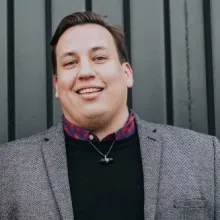
Drake Belt (he/him/his) is the current Assistant Director, Facility Operations and Safety Programs with the University of Arizona Campus Recreation. Drake oversees facility reservations, operations, and aquatics operations and programming alongside his 3 professional staff members and indirectly oversees around 50 students. Drake is married and has one child with one on the way, and loves to spend time with his 3 dogs and chickens. Working in higher education is a challenge Drake loves with an emphasis on creating inclusive spaces, developing meaningful relationships, and finding meaning in his work through mission-driven initiatives. When not spending time with family you can find Drake performing improv comedy in Tucson where he hopes to find new ways to be vulnerable with people and being his most authentic self.
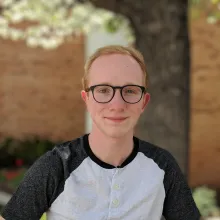
Galen Bergsten is a Ph.D. student at the Lunar and Planetary Laboratory in the Department of Planetary Sciences, with a research focus on extrasolar planets and astrobiology. Galen studied astronomy and plant biology as an undergraduate at the University of Utah, where he developed a passion for science outreach and communication. After graduating and beginning his Ph.D. online during the pandemic, his efforts within the ILC focus on retaining and building upon the inclusive teaching practices originally employed for the online era. Galen’s Project for Change aims to enable accessible lectures by providing support on the side of the instructors, via streamlined technology and better access to supplementary materials. He is interested in curating a library of resources and recorded demonstrations to better serve a diverse student body with a wide range of learning styles. Outside of academia, he enjoys cooking, volleyball, reading manga, and playing indie games.
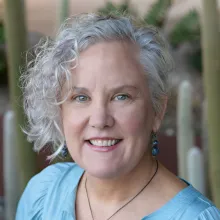
Courtney Coffey, Ph.D., is a Research Development Associate who supports faculty and staff across campus on education, training and diversity-focused proposals. She reviews proposals to help ensure alignment with the sponsor solicitation and provides both developmental editing (feedback on structure and responsiveness to review criteria) and copy editing (feedback on clarity and flow). She also helps coordinate partnerships and team building between University of Arizona staff, faculty and units. Courtney enjoys supporting proposals that create engaging, culturally-affirming learning environments for underserved communities and underrepresented students.
Courtney’s doctorate is in cultural anthropology, with a focus on gender and contemporary China. Post-doctoral work includes directing a binational drug abuse prevention program at the Border Health Foundation, teaching anthropology at Pima Community College, and teaching high school English for several years. Courtney also created and facilitated a course on cultural awareness for clinicians (at the Center for Integrative Medicine), and managed a clinical internship for diverse, low-income pre-med students offered by the College of Medicine.
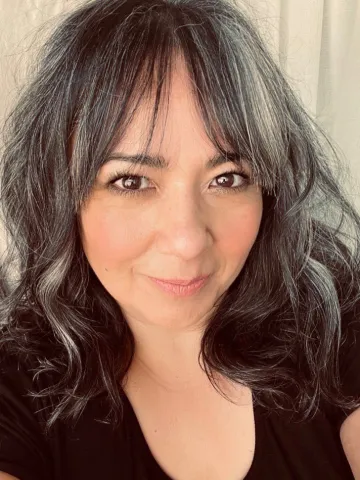
“People Developer”, “Catalyst for Action and Change”, “Defender of Humankind”—are all phrases used to describe Alexandra Diaz. Her expertise? Finishing a movie in five hours. She stops, researches, and then hits the play button (on repeat). Her pursuit of mastery, thirst for knowledge, and incessant need to create a just world, coupled with her ninja-like observation skills makes Alexandra a trusted protector, guide, and ally for anyone seeking a sense of purpose, a place of belonging, or a reliable compass for those that feel they’ve lost their way.
She is an avid Human Rights Activist and advocates primarily for the rights of Women, Latine Communities, and people with disabilities. She is a natural-born leader and first-follower and often moves behind others needing reassurance in their leadership capacities. She is comfortable in a role that shines a light on others and is perfectly content with anonymity.
Currently, she serves as the Director of the TRIO SSS STEM program and the Assistant Director of the Arizona Science, Engineering, & Math Scholars (ASEMS ) Program for First-Time Pathways. She holds degrees in Clinical and I/O psychology, has multiple specializations, and is in the process of defending her thesis in Health and Human Sexuality.
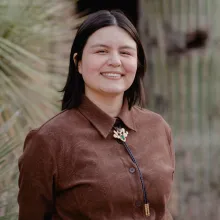
Ana Fierro is an Access Consultant at the Disability Resource Center and holds a Ph.D. from the University of Arizona in Teaching, Learning, and Sociocultural Studies. As an experienced educator and former instructional designer, Ana is invested in accessibility and Universal Design to create equitable and inclusive learning experiences. Through the ILC, Ana strives to proactively engage the wider campus community and encourage instructors to think critically about their curricular design for a more equitable experience that is inclusive of disabled students. Outside of the University, Ana lives with their spouse and enjoys being creative through the arts.
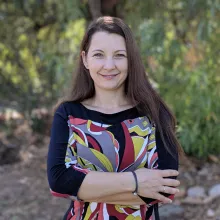
Borbala Gaspar is a Lecturer in Italian, with a Ph.D. in Second Language Acquisition and Teaching. She became interested in diversity, equity and justice while she was working on her dissertation on underrepresented foreign language learners. Borbala's research focuses on learners' voices, specifically learners': a. engagement in project-based learning, b. engagement with social justice materials as well as, c. agency development and their use of imagination. Through the ILC she aims to expand her knowledge and leadership skills. She is committed to learning more about the needed tools for access, equity, inclusivity, and a feeling of belonging for students participating in programs such as study abroad programs.
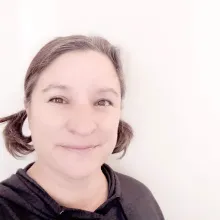
Christina Hornett is from Seattle, Washington, and has been living in Arizona for the last four years. Arizona's landscape, blue skies, and food culture have definitely made this her forever home. She currently works as an Academic Advisor II with CAST and as a Fall UNIV 101 instructor. Her previous experience has been as a Literature instructor at NAU's Honors College and Western Washington University.
She identifies as Cherokee and Chippewa, although she is learning about her culture and language on her own as my immediate family did not embrace where we came from, so it has been a process to uncover that history. It's been difficult but an amazing experience.
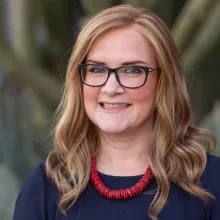
As a development officer, Susan Kaleita’s role is to cultivate relationships with alumni and donors to secure philanthropic resources for the College of Science. She has worked in fundraising, alumni relations, and career development for over a decade.
Prior to focusing on major gifts fundraising, Kaleita served as senior director for employer and alumni engagement in Student Engagement & Career Development, and she was the founding director of alumni career services for the University of Arizona Alumni Association.
Born and raised in the verdant ridges and valleys of Central Pennsylvania, Kaleita has lived in Tucson since arriving at the University of Arizona for graduate school in Geography in 2006. When not fundraising for the College of Science, she is often reading the newspaper, going out to breakfast, or making paper mache art.
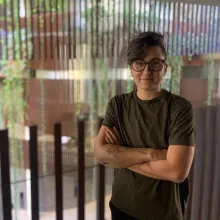
Eden Kinkaid (they/them) is a Ph.D. candidate in Geography at the University of Arizona. Their dissertation research focuses on the intersections of food, culture, and development in Tucson, Arizona. In addition to their dissertation, they pursue research and teaching in various areas, including food studies, geographic theory, gender studies, and art. Advancing diversity, equity, and inclusion within geography, and within academia more broadly, is part of their mission as a researcher, teacher, and scholar.
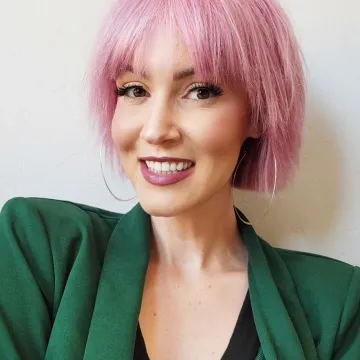
Becka Lopez is the director of early childhood education at the University of Arizona. She earned her Ph.D. in Teaching and Teacher Education with an emphasis in early childhood education from the University of Arizona in 2021. She also has a master’s degree in special education from the University of Kansas and her bachelor's degree in early childhood education from the University of Arizona. Her research interests include providing equitable learning opportunities for young children in early childhood classrooms and examining play-based pedagogy that prioritizes the cultural and community strengths that young children and their families bring into classrooms. In addition, Becka has 10 years of teaching experience in classrooms from preschool through 2nd grade.
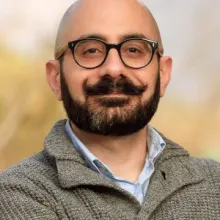
Ghassan Mouneimne, Ph.D., earned his Ph.D. from Albert Einstein College of Medicine, studying the migratory behavior of invading cancer cells in Dr. John Condeelis’ laboratory. During his postdoctoral training with Dr. Joan Brugge at Harvard Medical School, he pursued new approaches for studying the role of the cytoskeleton in regulating cancer cell invasion, including strategies combining in vitro and in vivo modeling of human cancers with bioinformatic and histological analyses of clinical samples. In his own laboratory, Dr. Mouneimne focuses on understanding the plasticity of invading cancer cells in complex heterogeneous tumor microenvironments, with the goal of developing therapies that are more effective in blocking metastasis. Dr. Mouneimne is currently a tenured associate professor in Cellular and Molecular Medicine.
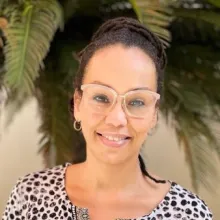
Tarnia Newton, DNP, FNP-C, is in the Community & Systems Health Science Division as a Family Nurse Practitioner (FNP) faculty. Her focus of interest is exploring advancing diversity, equity, inclusion, and belonging through culturally responsive pedagogy & service learning immersive experiences as alternative interventions to improve cultural humility & population health. She has been instrumental in integrating Safe Zone Training (SZT) into the DNP program which is an introductory workshop that provides an overview of LGBTQ+ terminology, health disparities, and issues facing the LGBTQ+ community. Dr. Newton is passionate about empowering nursing students through transformational community-based experiential learning experiences, so they learn to be pivotal in changing the landscaping of nursing by authentically understanding the root causes of systemic health inequities.
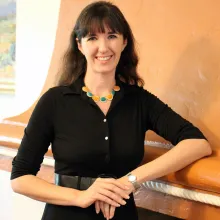
Karin Nolan is an Assistant Professor of Practice in Music Education at The University of Arizona, where she teaches music and music education majors and directs both the Office of Field Experiences and the Camerata Music Career Development Program. She is passionate about creating relevant curricula for today’s musicians and educators that allows for health, flexibility, advocacy, and transferability. Prior to joining the faculty at the School of Music in 2011, Nolan taught general music, band, orchestra, and choir in Tucson-area schools. Her research includes topics related to student learning, instrument choice, technology in the music classroom, Indigenous music teacher education, and health and longevity throughout one’s career. Exploring the cognitive link between music and other areas of the curriculum, Nolan has a book published through Rowman and Littlefield Education and the National Association for Music Education, entitled Musi-Matics and is currently publishing a second arts-integration book for teachers, entitled Reading, Writing, and Rhythm Sticks. Her articles and research studies have been published in Journal of String Research, General Music Today, Edutopia, Journal of Historical Research in Music Education, Cadenza Music News, Arizona Music News, Teaching Music, The National Association for Music Education, Music Educators Journal, and Dreambox Learning.
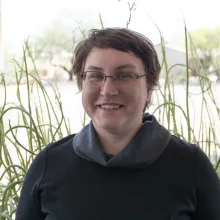
Clare Robinson, Ph.D., is an Associate Professor of Architecture at the University of Arizona where she teaches courses in architectural design and 20th-century architecture, and urban history and theory. Guided by questions about class, race, and aesthetics, her research examines social environments on American college campuses, suburban typologies, and regional planning efforts during the mid-twentieth century to analyze and theorize the intersections between modernism and society. She has published in the Journal of Architectural Education and Traditional Dwellings Settlements Review and has been the recipient of publication awards and numerous research grants. Robinson received her Doctorate in Architecture from the University of California, Berkeley, her Master of Architecture from Harvard Graduate School of Design, and a Bachelor of Art from Smith College. Recently appointed an advisor to students in the Master of Science in Architecture program, she now guides graduate students in research concerning heritage conservation, history, modernization, and modernity in architecture and urbanism.
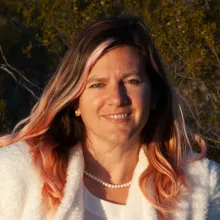
While earning her Ph.D. at The University of Arizona, Eva Karene Romero learned about different ways in which power is expressed, starting her ongoing exploration of representation, organizational culture, equity and inclusion. She takes on these themes in her 2016 book, Film and Democracy in Paraguay. She currently supports inclusion efforts as a Bilingual Writer on the Marketing and Communications team for the University of Arizona Cooperative Extension. She serves the Division of Agriculture, Life and Veterinary Sciences, and Cooperative Extension (ALVSCE) as Co-Chair of the Diversity & Inclusion Council, as well as the Arts Foundation of Tucson and Southern Arizona as Chair of the Justice, Equity Diversity and Inclusion (JEDI) Committee. Besides being the mother of a capricious seven-year-old and a string of foster dogs through Arms of Angels All Breed Animal Rescue, she also likes to climb Cemamagi Du’ag, Zumba, do yoga and even paint a little.
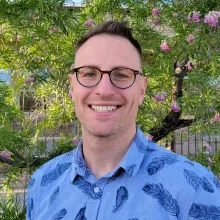
Jonathan Tullis, Ph.D., is an Associate Professor in the Department of Educational Psychology. After earning physics and psychology degrees at Dartmouth College, Jonathan taught high school chemistry and physics in San Antonio for two years. He then earned his Ph.D. in cognitive psychology from the University of Illinois. Jonathan currently leads the CAMEL (Cognition And Memory in Education & Learning) Lab, which investigates how learning environments can prompt learners to capitalize on the innate strengths of memory, minimize the impact of the intrinsic weaknesses of memory, and decrease the efforts learners expend. Using basic research, math models, and applied research, Jonathan examines fundamental cognitive processes so that we can more effectively structure learning environments to match the characteristics and quirks of cognition. Jonathan has earned an NSF CAREER grant to study how learners connect across different examples in order to generalize knowledge and apply that knowledge to new situations.
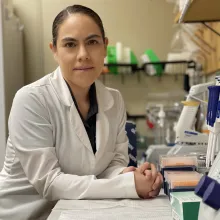
Karla Vargas is an NSF-Postdoctoral Fellow holding a joint appointment in the School of Natural Resources and the Environment at the University of Arizona and the Biodesign Institute, Center for Fundamental and Applied Microbiomics at Arizona State University. Her doctoral dissertation focused on the application of genomics approaches to the conservation of Sonoran wildlife. Her current research focuses on host-virus dynamics and viral diversity associated with wild populations of vertebrate species across the Baja California peninsula and the Sonoran Desert in Arizona. Karla became interested in equity and inclusion while working as a teacher in one of the largest urban school districts in the nation with a student population comprised mostly of minority and economically disadvantaged groups. Growing up in a small town, her own academic journey mirrored the experience of many Latinx women and other minorities largely underrepresented in science. Karla is passionate about advancing diversity and inclusion and she hopes to strengthen her leadership and communication skills through ILC to continue working towards a more diverse and inclusive environment.
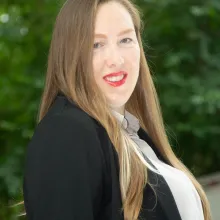
Christina Baze is a Postdoctoral Research Associate I in the Department of Systems and Industrial Engineering, with a Ph.D. in STEM Education. She became interested in both service and justice, equity, diversity, and inclusion (JEDI) during her time as a doctoral student at The University of Texas at Austin. Christina’s research examines science, math, and engineering education through sociocultural, feminist, and constructivist lenses and includes examinations of epistemologies, agency, and identity. Her service work within the ILC centers the lived experiences of the College of Engineering community members (students, staff, and faculty), especially those from historically marginalized groups. Specifically, she is interested in making policies and reporting procedures around discrimination and harassment more transparent, understandable, and easy to navigate. As a person outside of academia, Christina lives with her husband, two children, three horses, two dogs, cat, rabbit, rat, and ball python. Her family is from Flagstaff and all are glad to be back in our home state.
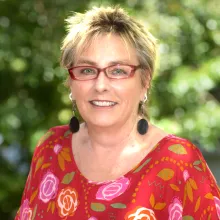
Sheena Brown, Ph.D. is the Director of the Human Services program and Associate Professor of Practice, who works to support and empower non-traditional students entering the field of human services. Her principal goal is to maximize students’ success as intellectuals, community leaders and individuals, through rigorous self-assessment and critique via a culturally responsive lens. Sheena is a multidisciplinary trained community-engaged scholar, blending a biological perspective with sociocultural aspects of health, with a focus on the intersection of biology, ethnicity, culture, gender, and social stressors, and how these factors contribute to marginalization and oppression within higher education. Current research aims to provide insight into understanding the needs of post-traditional students in online learning environments to incorporate inclusive adult-learning strategies that best accommodate students’ needs for successful degree completion and career development. Sheena trained and worked as a neurobiologist researcher, gaining her Ph.D. from the University of Otago (New Zealand), and MPH in Maternal and Child Health from UA, and has trained in Mindfulness in Schools, Mindfulness-based Stress Reduction, Trauma-Informed Care, and is currently working towards certification in Trauma and Resilience Coaching.
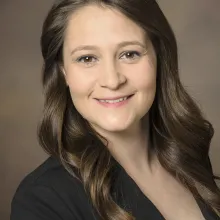
Arlette Cordery is the Space and Facilities Manager at UA’s College of Social & Behavioral Sciences (SBS) where she works with 19 academic departments and 13 centers/institutes that are housed across 232,000 square feet on Main Campus and off-campus. She earned her B.A. in Veterinary Science and M.S. in Microbiology from the College of Agriculture & Life Sciences. For her dissertation, she researched the effectiveness of plant essential oils/extracts in reducing bacteria on fresh produce. After graduating, she conducted research and managed a pulmonary hypertension lab at the College of Medicine. Within SBS, she is a member of the college’s DEI council and coordinates monthly workshops and newsletters that reach more than 200 staff members. Outside of the University, she enjoys camping, watching anime and listening to reggaetón. Her mother immigrated from Colombia and grew up in New York City while her father grew up in Long Island, NY with German ancestry. Through the ILC, she strives to expand her knowledge and leadership skills to continue fostering an inclusive environment for everyone at SBS. Her Project for Change will evaluate the needs and costs for improving ADA accessibility, all gendered restrooms and ergonomic furnishings across SBS spaces on campus.
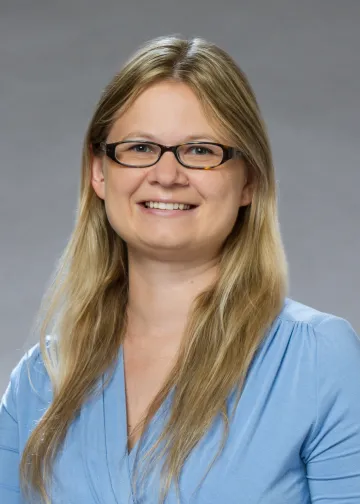
Anastasiya Ghosh, Ph.D. joined the Eller College of Management in 2017. She is an Associate Professor of Marketing and Susan and Philip Hagenah Endowed Faculty Fellow. Her areas of expertise are judgment and decision making, field experiments and behavioral interventions. She was elected Chair of the Faculty for Eller College for 2021-2023.
https://eller.arizona.edu/people/anastasiya-pocheptsova-ghosh
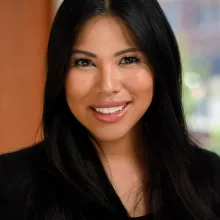
Timian Godfrey, DNP, APRN, FNP-BC, is an assistant clinical professor at the University of Arizona College of Nursing, is an enrolled member of the Navajo Nation, has a Doctor of Nursing Practice degree and is certified in public health training. In addition to her faculty position, she is an advanced practice nurse working in emergency medicine in rural tribal communities. She is a strong advocate for increasing the presence of underrepresented minorities in health profession fields and advancing the health of communities to attain health equity. She is the current project director for two federal grants programs aiming to diversify the nursing workforce. Timian is the co-director of Equity, Diversity and Inclusion at the UA College of Nursing and serves on the interprofessional UA Health Sciences ED&I task force. Further, Timian is the chair-elect for the inaugural Western Institute of Nursing Diversity and Inclusion Committee and serves on the American Association of Colleges of Nursing ED&I Committee to promote diversity, equity and belonging in nursing research and education in the United States. Lastly, she is engaged in efforts to establish an additional Arizona Health Education Center aimed to develop education opportunities in health sciences with the 22 tribal nations in Arizona.
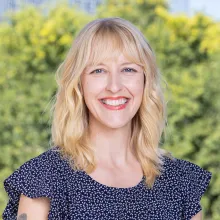
Melissa Keller is a mental health clinician and supervisor at Counseling & Psych Services. She is a Licensed Clinical Social Worker and an AZBBHE-approved clinical supervisor. She is currently a doctoral candidate in Behavioral Health Management at ASU. Melissa provides counseling, yoga therapy and crisis stabilization services at CAPS. Melissa also serves on the leadership team as a supervisor and co-chair of the CAPS Social Justice Steering Committee. She is a faculty advisor for the peer-to-peer groups Mindful Ambassadors and Wildcats Anonymous. Melissa's clinical interests include neurophysiology, integrative healing practices, and the ways in which intersectional systems of privilege and oppression impact lived experiences of wellness, stress, and trauma. She is committed to improving access and equity around mental and emotional wellbeing for all University of Arizona students. As a supervisor, she supports mental health providers around compassion fatigue and professional development related to justice, equity, and access.
Catrina Mitchum
Interim Director of Online Writing
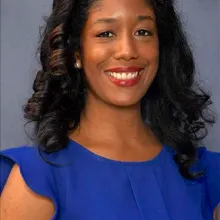
Kelly Palmer, PhD, MHS, CCRP is the Associate Director of the UAHS Center for Health Disparities Researcher and an Assistant Professor in the Department of Health Promotion Sciences at the University of Arizona Mel and Enid Zuckerman College of Public Health. Broadly, her research seeks to understand sociocultural influences of health behavior and to design and implement culturally informed interventions to achieve health equity for vulnerable and underserved populations. Her desire is to understand how to better engage these populations- particularly Black women in research, chronic disease screening, and cardiometabolic risk reduction interventions. Her work is centered on how experiences and perspectives impact cardiometabolic related health outcomes using community and asset-based approaches. She employs qualitative inquiry to solicit comprehensive personal accounts and contextual information from individuals that can help to improve interventions and health care delivery in populations experiencing a disproportionate burden of cardiometabolic disease.
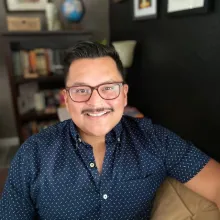
Hector Reyes
Mental Health Clinician/Embedded Counselor
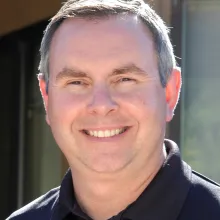
Robert Sommerfeld
Assistant Chief of Police
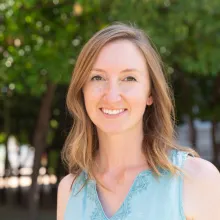
Stephanie Tammen is a Senior Instructional Designer within Digital Learning, where she has been using her background in science and education to help STEM faculty bring their courses online since 2019. She earned her B.S. in Nutrition Science at the University of Arizona before moving to Boston to complete a Ph.D. in Biochemical and Molecular Nutrition at Tufts University where she researched the impact our diet has on epigenetic changes in the digestive tract. Stephanie is interested in improving online courses so that they are welcoming and accessible to all learners. Her goal upon completion of the ILC is to share inclusive pedagogy techniques that STEM faculty can readily adapt into the design and facilitation of their online courses. Outside of the office, Stephanie likes to swim, travel, garden, fix up her house, and be outdoors.
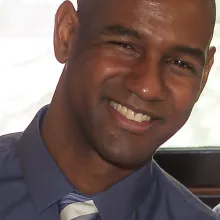
Charles Walker is Program Coordinator of Diversity, Equity and Inclusion at the College of Applied Science and Technology, University of Arizona. Joining the college in early 2020, he develops strategic initiatives and actions that guide CAST in becoming a more diverse, equitable, and inclusive academic organization. Prior to pursuing a career in academia, he served in the United States Army for 23 years as a Signal Intelligence professional. Serving in roles at the senior executive and advisory levels within the diverse military and intelligence-focused communities, Charles provides the dexterity and perspective required to understand and serve student, faculty and staff needs across many aspects of diversity, equity, inclusion, and accessibility at CAST. Charles actively engages with internal and external partners to create actionable pathways towards inclusive excellence for college and university-wide initiatives. He is the current Chair of the CAST DEI Committee; an Active member of the University of Arizona Diversity Coordinating Council; a Fellowship - Inclusive Leadership Cohort; Veteran Advocate for University of Arizona Student Veterans. Charles holds a BS in Intelligence and an MS in Strategic Intelligence, all from the National Intelligence University in Washington, DC.
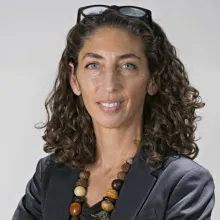
Beth Weinstein
Associate Professor, Architecture
